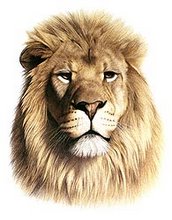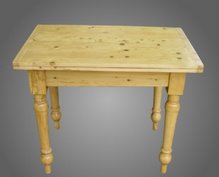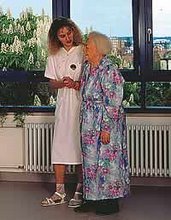↓ B. Lektion 37. ↔︎ Lektion 39.

| Home - Gr38 - Lek38 - Stories - Duo - |
| Parole/565 - GP101 - TLde - Pint/38 - Verbi - Lezioni - Fonti didattiche - |
/Home: 38. In Fernsehen - 1. In Fernsehen.
- 2. Ben und Martha sitzen abends auf ihrem Sofa und schauen fern. - 3.
Es läuft eine Live-Gameshow. - 4. Martha sieht einen der Kandidaten und
ruft: - 5. Hey, ich kenne diese Typ! Das ist Gunnar! - 6. Ich bin mit
ihm zur Universität gegangen! - 7. Ben und Martha sind überrascht, dass
sie jemanden im Fernsehen kennen. - 8. In diese, Show fragt man die
Kandidaten, ob sie eine Person gebiet haben… - 9. … aber es ihr nie
gesagt haben! - 10. Martha versucht sie an ihre Uni-Tage zu erinnern. -
11. Sie weiß nicht, welche Frau Gunnar liebte. - 12. Gunnar sagt den
Namen der Frau nicht. - 13. Er beschreibt sie aber als "lustig" und
"hübsch". - 14. Der Moderator erzåhlt Gunnar, dass er die Kontaktdaten
dieser Frau hat. - 15. Gunnar kann sie jetzt nrufen. - 16. Gunnar wählt
die Nummer und Martha sagt: - 17. Ich frage mich, wer es ist. - 18. In
diesem Moment klingelt Marthas Telefon! - 19. Ben und Martha schauen
sich überrascht an! - 20. Haha, ich hab dir schon immer gesagt, dass du
hübsch und lustig bist! –
• Words/565:
LEKTION 38/xix.en/Nom. Pron.
Gr38. - Tips.
Der Words
Remember, the word for the changes forms based on
gender
. You can remember these forms with the abbreviation RESE, which spells out the endings for der
, die
, das
, and die
! And here’s something neat — there’s a whole group of words called der words that follow this
pattern
!der Mann | dieser Mann
jeder Mann |
die Frau | diese Frau
jede Frau |
das Kind | dieses Kind
jedes Kind |
die Blumen | diese Blumen |

Dieser Apfel ist rund.
This apple is round.Die beiden Frauen?
Some words, such as
beide
and alle
, are usually pretty noun‑y
. Sometimes, though, they can be used as adjectives
! used as a noun | used as an adjective |
Beide mögen Kaffee.
Both like coffee. | Die beiden Frauen sind toll.
Both women are great. |
Der Junge isst viel.
The boy eats a lot. | Wir essen viele Kartoffeln.
We eat many potatoes. |
Notice the n in
die beiden Frauen
? Adjectives have endings to match the noun they’re with. We’ll look at adjective endings in more detail later on!
Lek38.
a/1
1. Manche Jungen schreiben. Some boys write. - 2. Jeder hört es. Everyone hears it. - 3. Jede Jatze mag Milch. Every cat likes milk. - 4. Alle sehen den Apfel. Everyone sees the apfel. - 5. Jede Katze mag Milch. Every cat likes milk. - 6. Diese Jeans ist weit. These jeans are wide. - 7. Dieser Wein kommt aus Spanien. This wine is from Spain. - 8. Ist alles klar? Is everything clear? - 9. Anna ist dieses Kind. Anna is this child. - 10. Viele Kinder sind klein. Many children are short. - 11. Dies sind Katzen. These are cats. - 12. Diese Apfel sind groß. These apples are big. - 13. Both women are terrific. Die beide Frauen sind toll. - 14. You both, please. Ihr beide, bitte! -
a/2
15. Ich habe ein paar Bücher. I have a few books. - 16. Hat jemand eine Jacke. Does anyone have a jacket. - 17. Sie ist jemand. She is someone. - 18. Ich brauche etwas Zucker. I need some sugar. - 19. Sie liest viel. She reads a lot. - 20. Niemand hat es. Nobody has it. - 21. No one is good. Niemand ist gut. - 22. Sie haben ein paar Kartoffeln. They have e few potatoes. - 23. Hast du etwas Milch? Do you have some milk? - 24. Es ist etwas kalt. It is a little cold. - 25. Das ist viel. It is a lot. - 26. Niemand ist perfekt. Nobody is perfect. - 27. Does anyone a jacket? Hat jemand eine Jacke? - 28. They have a few potatoes. Sie haben ein paar Kartoffeln.
b/1
29. He does not read many books. Er liest nicht viele Bücher. - 30. Dies ist Natur. This is nature. - 31. Anna is this child. Anna ist dieses Kind. - 32. Jede Katze mag Milch. Every cat likes milk. - 33. Some boys are drinking water. Manche Jungen trinken Wasser. - 34. Die beiden Frauen sind toll. Both women are terrific. - 35. This apple is round. Dieser Apfel ist rund. - 36. Jeder ist willkommen. Everyone is welcome. - 37. All women. Alle Frauen. - 38. Diese Bäume haben Orangen. These trees have oranges. - 39. You both, please! Ihr beide, bitte! - 40. Jede Katze mag Milch. Every cat likes milk. - 41. Everything is clear. Alles ist klar. - 42. These girls are pretty. Diese Mädchen sind schön. -
b/2
43. No one is good. Niemand ist gut. - 44. Hat jemand eine Jacke? Does anyone have a jacket? - 45. Does anyone a jacket? Hat jemand eine Jacke? - 46. Sie haben ein paar Kartoffeln. They have a few potatoes. - 47. No one is good. Niemand ist gut. - 48. Niemand ist perfekt. Nobody is perfect. - 49. They have a few potatoes. Sie haben rin paar Kartoffeln. - 50. Ich habe ein paar Bücher. I have a few books. - 51. It is a little cold. Es ist etwas kalt. - 52. Das ist viel. That is a lot. - 53. That is a lot. Das ist viel. - 54. Es ist etwas kalt. It is a little cold. - 55. Er schmeckt etwas. He tastes something. - 56. Does anyone have a jacket? Hat Jemand eine Jacke? -
c/1
57. Jeder Käse schmeckt gut. Every cheese tastes good. - 58. These trees have oranges. Diese Bäume haben Orangen. - 59. Jede Katze mag Milch. Every cat likes milk. - 60. Many children are short. Viele Kinder sind klein. - 61. Dies sind Äpfel. These are apples. - 62. Ihr beide, bitte. You both, please. - 63. Die beiden Frauen sind toll. Both women are terrific. - 63. Jede Katze mag Milch. Every cat likes milk. - 64. Ist alles klar? Is everything clear? - 65. Alle Frauen. All women. - 66. Das ist alles. That is all. - 67. Manche Hunde trinken Wasser. Some dogs drink water. - 68. Bist du diese Frau? Are you this woman. - 69. Dieses Pferd und dieses Hund. This horse and this dog. - 70. Das ist alles. That is all. -
c/2
71. Sie ist jemand. She is someone. - 72. Nobody is perfect. Niemand ist perfect. - 73. Ich brauche ein paar Hüte. I need a few hats. - 74. I do not hear much. Ich höre nicht viel. - 75. Ich brauche etwas Zucker. I need some sugar. - 76. Do you have some milk. Hast du etwas Milch? - 77. Niemand hat es. Nobody has it. - 78. Ich brauche etwas Zucker. I need some sugar. - 79. Ich habe ein paar Bücher. I have a few books. - 80. Das ist viel. That is much. That is a lot. - 81. Er ist jemand. He is someone. - 82. Hat jemand eine Jacke? Does someone have a jacket? Does anyoe have a jacket? - 83. Ich habe ein paar Bücher. I have a few books. - 84. Niemand ist gut. Nobody is good. No one is good. - 85. Do you have some milk. Has du etwas Milch? -
d/1
86. You both, please! Ihr beide, bitte! - 87. Dies sind Katzen. Those are cats. These are cats. - 88. These girls are eating rice. Diese Mädchen essen Reis. - 89. Jede Katze mag Milch. Every cat likes milk. - 90. The both of you want cats! Ihr beiden wollt Katzen. - 91. Diese Bäume haben Orangen. These trees hav oranges. - 92. Everybody needs water. Jeder braucht Wasser. - 93. Alle mögen sie. Everyone likes them. - 94. That is all. Das ist alles. - 95. Dieses Öl ist aus Italien. This oil is from Italy. - 96. Some men are walking. Mänche Männer laufen. - 97. Dieser Ring ist alt. This ring is old. - 98. Alles ist gut. Everything is fine. - 99. Das sind viele Bücher. That's a lot books. - 100. Everybody leeds water. Jeder braucht Wasser. - 100. Dieses Öl ist aus Italien. This oil is from Italy. - 101. Dieses Ring ist alt. This ring is old. -
d/2
102. Nobody has it. Niemand hat es. - 103. Niemand mag das. Nobody likes it. Nobody likes that. - 104. He is someone. Er ist jemand. - 105. Ich brauche etwas Zucker. I need some sugar. - 106. I do not hear much. Ich höre nicht viel. - 107. Ich habe ein paar Bücher. I have a few books. - 108. He tastes something. Er schmeckt etwas. - 109. Er schmeckt etwas. He tastes something. - 110. He is someone. Er ist jemand. - 111. Niemand ist perfekt. Nobody is perfect. - 112. I have a few books. Ich habe ein paar Bücher. - 113. Das ist viel. That is a lot. - 114. Ich habe ein paar Bücher. I have a few books. - 115. Sie ist jemand. She is someone. -
e/1
116. Dies sind Zeitungen. These are newspapers. - 117. Jede Katze mag Milch. Every cat likes milk. - 118. Diese Äpfel sind groß. Both women are terrific. - 119. Jede Katze mag Milch. Every cat likes milk. - 120. Alles ist toll. Everything is awesome! - 121. These girls are pretty. Diese Mädchen sind schön. - 122. Wir essen viele Kartoffeln. We are eating a lot of potatoes. - 123. You both, please. Ihr beide, bitte! - 124. This horse and this dog. Dieses Pferd und dieser Hund. - 125. This bear is young. Dieser Bär ist jung. - 126. Some men are walking. Manche Männer laufen. - 127. All women. Alle Frauen. - 128. This horse and this dog. Dieses Horses und dieser Hunde. -
e/2
129. Ich habe ein paar Bücher. I have a few books. - 130. Das ist viel. That is a lot. - 131. Sie haben ein paar Kartoffeln. They have a few potatoes. - 132. Hat jemand eine Jacke? Does anyone have a jacket? - 133. Niemand mag das. Nobody likes it. - 134. Er smeckt etwas. He tastes something. - 135. Niemand ist perfekt. Nobody is perfect. - 136. Hast du etwas Milch? Do you have some milk? - 137. I do not hear much. Ich höre nicht viel. - 138. Er ist jemand. He is someone. - 139. Nobody is perfect. Niemand ist perfekt. - 140. Does anyone have a jacket? Hat jemand eine Jacket? - 141. I am eating some fruit. Ich esse etwas Obst. - 142. I have a few books. I habe ein paar Bücher. - 143. I am eating some fruit. Ich esse etwas Obst. -
f/1.
144. Das sind viele Bücher. That's a lot of books. - 145. Beide mögen Kaffee. Both like coffee. - 146. Manche Hunde laufen. Some dogs run. - 147. He is someone. Er ist jemand. - 148. Manche Mädchen essen Reis. Some girls eat rice. - 149. Wir essen viele Kartoffeln. We eat many potatoes. - 150. Manche Hunde trinken Wasser. Some dogs drink water. - 151. Alle sehen den Apfel. Everyone sees the apple. - 152. Sie haben ein paar kartoffeln. They have a few potatoes. - 153. Nobody likes that. Niemand mag das. - 154. Hat jemand eine Jacke? Does anyone have a jacke? - 155. Do you have some milk? Hast du etwas Milch? - 156. Beide mögen Kaffee. Both of them like coffee. - 157. You both, please! Ihr beide, bitte! - 158. Wir essen viele Kartoffeln. We are eating a lot of potatoes. - 159. Die beiden Frauen sind toll. Both women are amazing. - 160. Alle sehen den Apfel. Everyone sees the apple. - 161. Every cheese tastes good. Jeder Käse schmeckt gut. - 162. Jeder hört es. Everyone hears it. - 163. Ihr beiden wollt want cats. You both want cats. - 164. Das sind viele Bücher. That's a lot of books. - 165. Alle sehen den Apfel.






Nessun commento:
Posta un commento